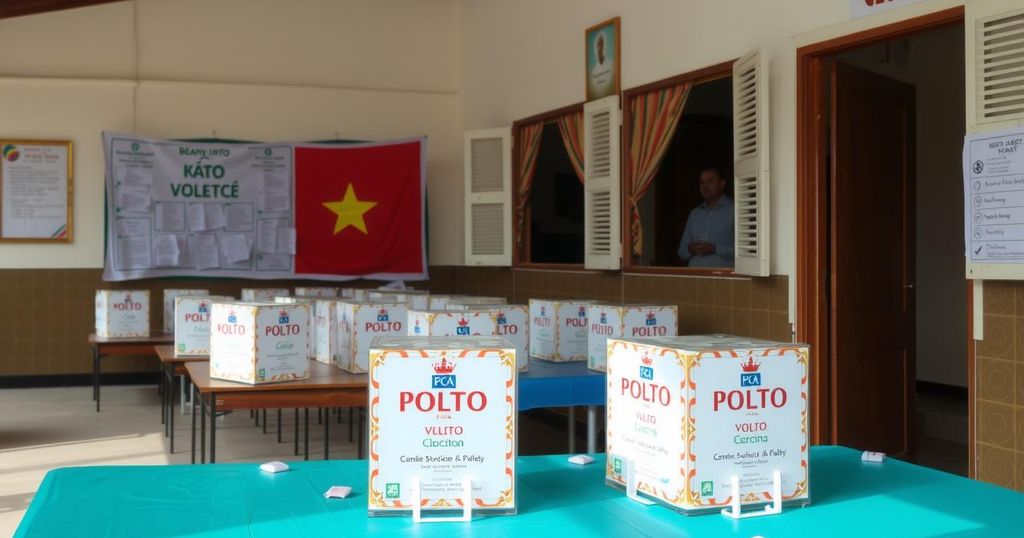World news
ABDALLAH SAMBI, AFRICA, AUSTRALIAN ASSOCIATED PRESS, AZALI ASSOUMANI, COMOROS, ELECTION FRAUD, GOVERNANCE, GOVERNMENT, HAMIDOU KARIHILA, HOPE OF THE COMOROS, INDIAN OCEAN, INDIAN OCEAN ARCHIPELAGO, JUWA, NO, NOUR EL - FATH, OPPOSITION, POLITICS, PRESIDENTIAL ELECTION, REUTERS, SUPREME COURT
Jamal Robinson
0 Comments
Comoros Elects New Parliament Amid Allegations of Authoritarian Rule
Voters in Comoros are electing a new 33-seat parliament, following contentious allegations surrounding President Azali Assoumani’s re-election last year. About 338,000 voters are registered for the polls after almost 100 candidates were approved by the Supreme Court. Opposition parties urge participation to expose government flaws, while some call for a boycott. Results are expected by Friday.
Voters in the Comoros archipelago have begun the process of electing a new 33-seat parliament. This election comes after last year’s controversial re-election of President Azali Assoumani, which opposition parties described as fraught with irregularities, assertions that officials from the ruling party have firmly denied. Approximately 338,000 individuals are registered to cast their votes in polling stations that opened on Sunday.
The last parliamentary elections in Comoros occurred in January 2020, and nearly 100 candidates were selected by the Supreme Court to participate this time. Assoumani’s opponents voice concerns over his perceived autocratic tendencies, speculating that he may be grooming his eldest son, Nour El-Fath, to take over the presidency upon the end of his current term in 2029. Since assuming power in 1999 through a coup, Assoumani has successfully won three elections. Recently, he has conferred extensive new powers to his son, entrusting him with the coordination of government affairs.
Some opposition factions, including the Juwa party, led by former President Ahmed Abdallah Sambi—currently serving a life imprisonment sentence—have advocated for a boycott of the elections. However, notable dissenting groups have rejected such calls. Hamidou Karihila, representing the opposition Hope of the Comoros party, stated, “The Azali regime is weakened … by participating in these elections we are contributing to further exposing the flaws in its system and accelerating its inevitable fall.” The results of this electoral process are anticipated by Friday.
The political landscape of Comoros has been marked by instability and allegations of authoritarianism, particularly under President Azali Assoumani, who has been in power for over two decades. Following his controversial re-election last year, calls for reforms and challenges to his regime have intensified. The current parliamentary election represents a critical moment for the opposition as they seek to challenge Assoumani’s grip on power, amid widespread concerns about electoral integrity and democratic governance. The involvement of various opposition parties and the differing strategies regarding participation highlight the complexities of the political situation in Comoros.
In conclusion, the parliamentary elections in Comoros signify a critical juncture for the country’s political future. With significant opposition to President Assoumani’s long-standing rule and allegations of electoral malpractice lingering, the outcome of this election could potentially reshape the political dynamics in the archipelago. As the election unfolds, the response from both the government and opposition will likely set the tone for future governance and democratic practices in Comoros.
Original Source: www.begadistrictnews.com.au




Post Comment